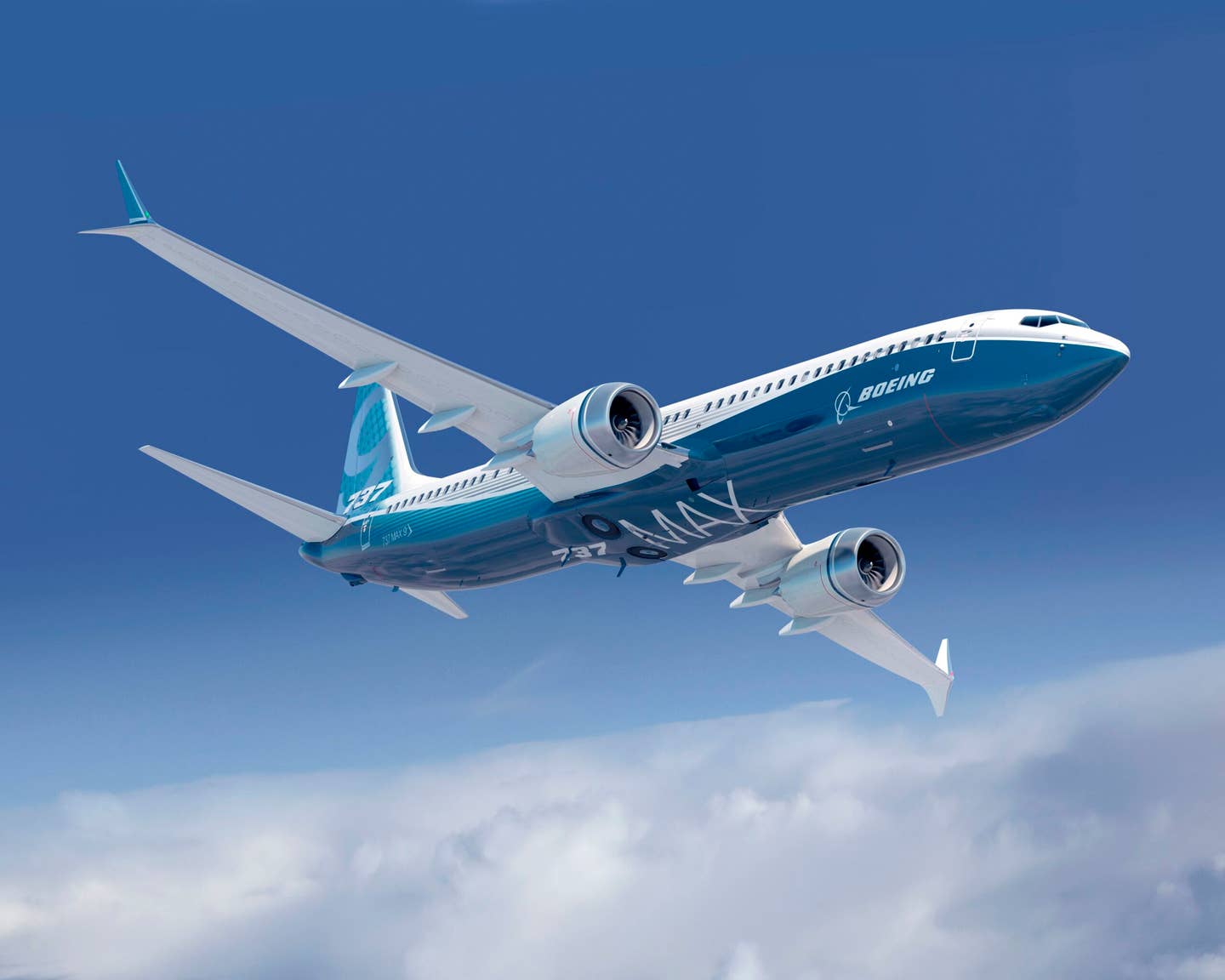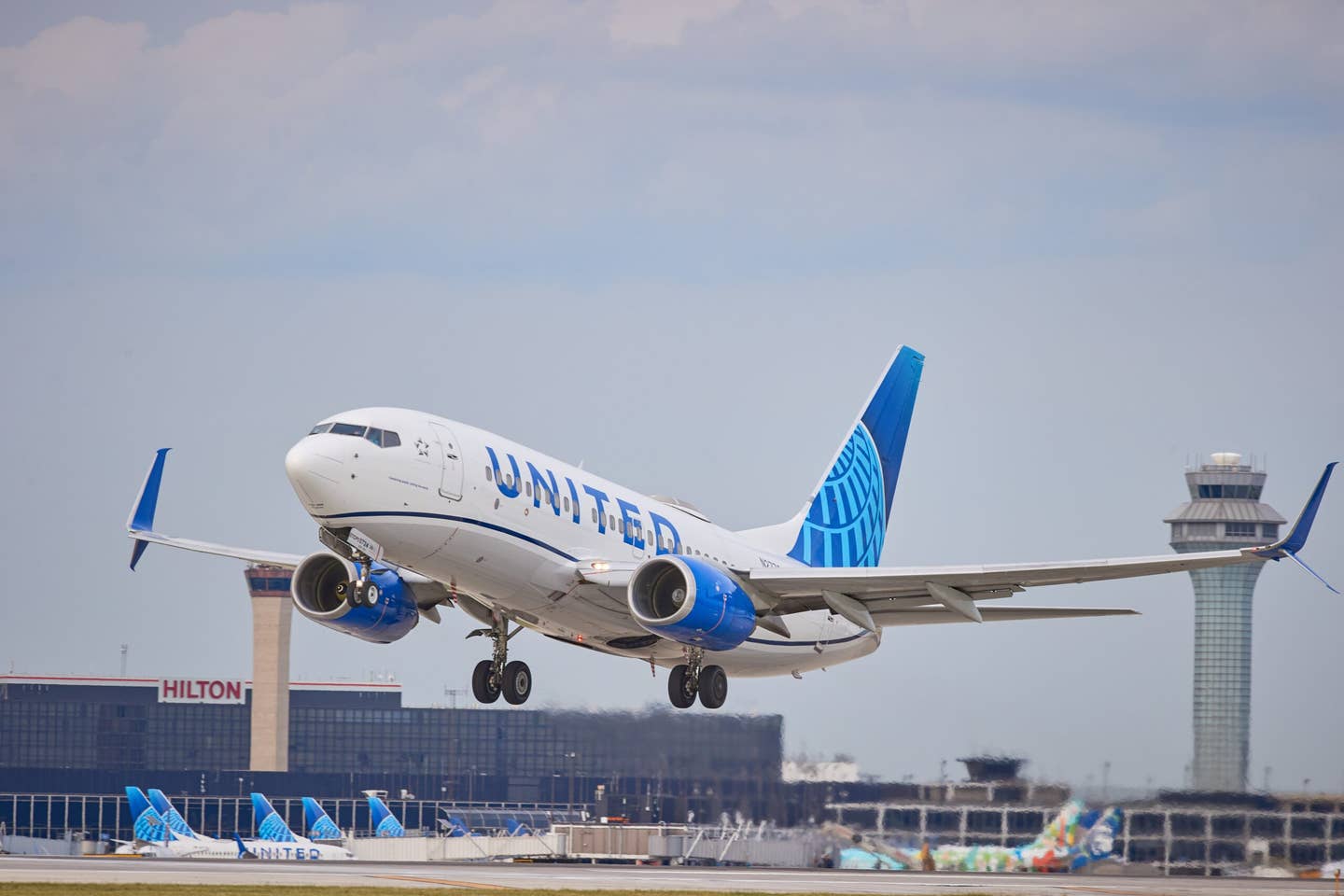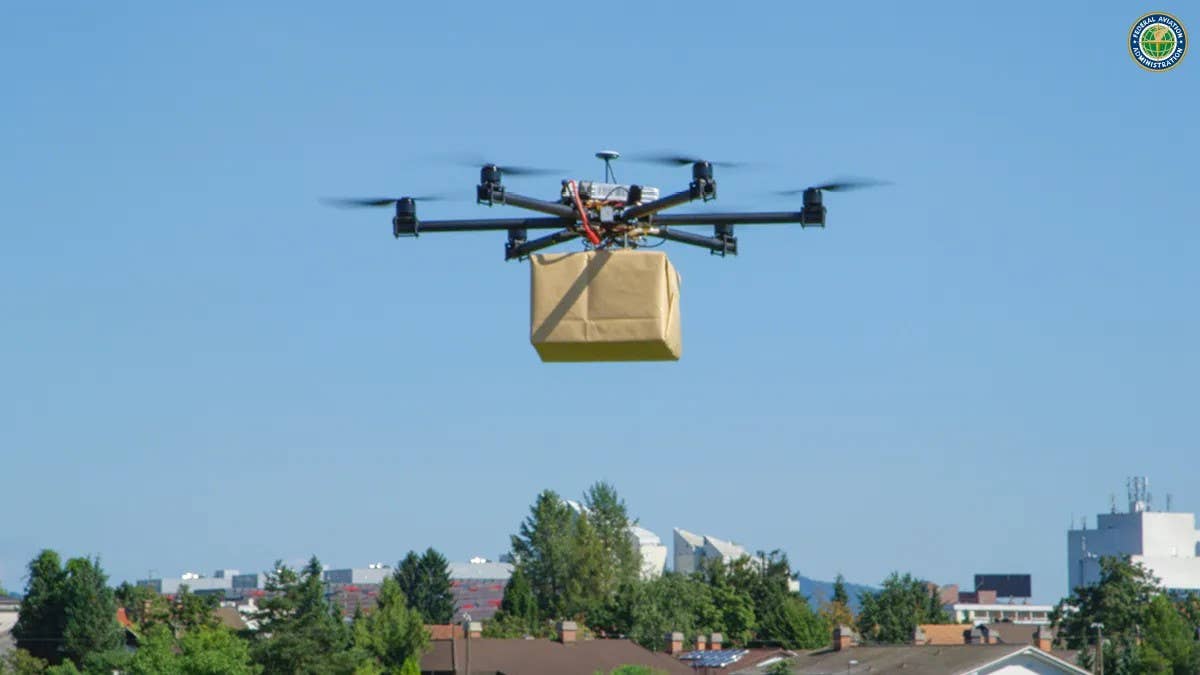FAA Gives Boeing 90 Days to Improve
An all-day meeting between the FAA and Boeing resulted in harsh words from the agency.

The Boeing 737 Max in flight. [Courtesy: Boeing]
The FAA is giving Boeing 90 days to come up with a "comprehensive action plan to address its systemic quality-control issues to meet FAA’s nonnegotiable safety standards."
According to an FAA statement, the agency and top officials from Boeing spent Tuesday in a safety discussion at FAA headquarters in Washington, D.C.
“Boeing must commit to real and profound improvements,” FAA Administrator Mike Whitaker said following the meeting with Boeing CEO and president Dave Calhoun and his senior safety team. “Making foundational change will require a sustained effort from Boeing’s leadership, and we are going to hold them accountable every step of the way, with mutually understood milestones and expectations.”
This is not the first time the FAA has taken a hard look at Boeing. A series of deadly accidents involving Boeing Max aircraft grounded the entire fleet for more than a year. Then on January 5 a Boeing 737 Max 9 (Alaska Airlines Flight 1282) lost a door plug during climbout from Portland International Airport (KPDX) in Oregon. There were no serious injuries, and the aircraft was able to return to KPDX for landing.
Within hours, the FAA grounded 171 Boeing 737 Max 9s and is now investigating Boeing’s manufacturing practices and production lines, including those involving subcontractor Spirit AeroSystems, the Wichita, Kansas, manufacturer of the fuselages of the 737. The agency is also "bolstering its oversight of Boeing and examining potential system change."
The preliminary investigation into the January 5 event by the National Transportation Safety Board (NTSB) revealed the bolts designed to hold the door plug in place were missing because they had not been reinstalled after maintenance.
On February 12, Whitaker came to Boeing’s factory in Renton, Washington, where the 737 that became Alaska Airlines Flight 1282 was assembled. The airliner was relatively new, having been in service since October.
Whitaker visited the 737 production line and spoke directly with Boeing engineers, mechanics, and others about quality-control processes. The FAA noted the administrator also went to the Alaska Airlines headquarters to discuss the blowout.
“Boeing must take a fresh look at every aspect of their quality-control process and ensure that safety is the company’s guiding principle,” said Whitaker of the Arlington, Virginia-headquartered aerospace giant.
Whitaker told Boeing company officials that he expects the aircraft manufacturer to have a comprehensive action plan available within 90 days and that it will incorporate the "forthcoming results of the FAA production line audit and the latest findings from an expert review panel report, which was required by the Aircraft Certification, Safety, and Accountability Act of 2020.”
The report, released earlier this week, was critical of Boeing's safety culture and noted that there needs to be an improvement in communication and that employees are afraid to speak up about safety concerns for fear of retaliation.
- READ MORE: FAA Critical of Boeing Safety Culture
"The plan must also include steps Boeing will take to mature its safety management system (SMS) program, which it committed to in 2019,” the FAA said in a statement. “Boeing also must integrate its SMS program with a quality management system, which will ensure the same level of rigor and oversight is applied to the company’s suppliers and create a measurable, systemic shift in manufacturing quality control."
In addition, the FAA declined Boeing's request to increase production of the 737 Max 9 and is "exploring the use of a third party to oversee Boeing and will wrap up its enhanced oversight audit of Boeing’s production and manufacturing quality systems in the coming weeks."
The agency said an investigation into Boeing’s alleged noncompliance is also underway.
When FLYING reached out to Boeing for a response, a company spokesperson replied with the following statement: “By virtue of our quality stand-downs, the FAA audit findings and the recent expert review panel report, we have a clear picture of what needs to be done. Transparency prevailed in all of these discussions. Boeing will develop the comprehensive action plan with measurable criteria that demonstrates the profound change that administrator Whitaker and the FAA demand. Our Boeing leadership team is totally committed to meeting this challenge.”

Subscribe to Our Newsletter
Get the latest FLYING stories delivered directly to your inbox






